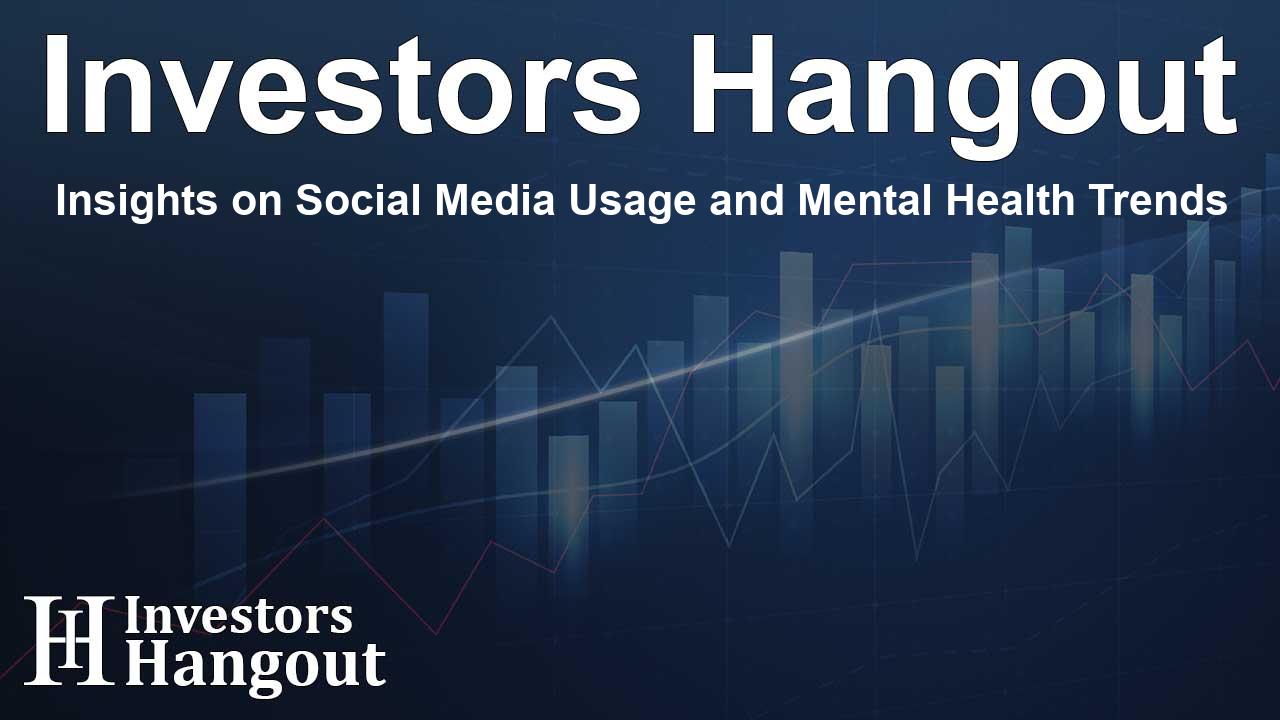Insights on Social Media Usage and Mental Health Trends

Understanding Social Media's Impact on Mental Health
Recent polling indicates that many adults are rethinking their connection with social media. Despite the fact that a significant number of adults feel anxious without their phones, it's noteworthy that half are actively reducing their social media usage. This trend seems to reflect a broader awareness of how social media affects mental health.
Changing Perspectives on Social Media
The data reveals a split in perception regarding social media's overall impact. While 44% feel indifferent, a substantial number of respondents view it more negatively than positively. Specifically, 32% feel that social media causes more harm than good. This may indicate a growing consciousness about the quality of information consumed on these platforms.
Parents' Perspectives
When it comes to parental concerns, only 28% believe that social media negatively impacts their children's mental well-being. These figures suggest that parents might be becoming more aware of the potential pitfalls of social media, yet many still remain cautious about its influence.
Engagement with Mental Health Content
Interestingly, a notable portion of the audience seems disengaged with mental health discussions online, as 43% of adults reported not getting involved with mental health content. However, engagement with mental health narratives on social media has increased, with more people sharing personal experiences and discussing disorders than in prior years. For example, 38% of adults are now sharing mental health stories, which is a significant jump from earlier statistics.
Popular Platforms for Mental Health Information
Among the users seeking mental health information, YouTube emerges as a predominant platform, with 36% reporting they find relevant resources there. Facebook follows closely at 29%. Interestingly, men are more likely to seek information on these platforms compared to women.
The Role of Professional Guidance
Despite the prominence of social media discussions, only about 17% of Americans have discussed online mental health information with a professional. The likelihood of seeking professional advice appears to be higher among younger adults. This could signal a growing trend where the younger generation recognizes the importance of pairing social media insights with professional input.
Encouraging Dialogue
Dr. Theresa M. Miskimen Rivera, the APA President, expressed a hopeful sentiment regarding the increased conversations surrounding mental health on social media. She emphasized the necessity of ensuring that information shared is accurate and evidence-based and urged individuals to seek professional help when needed.
Key Findings from the Poll
This insightful poll, part of the APA's ongoing efforts to understand mental health trends, was conducted with a representative sample of adults. The results paint a diverse picture of how individuals are interacting with social media in relation to their mental health. As conversations about mental health continue, it's crucial to monitor how social media influences these dynamics.
Frequently Asked Questions
What does the latest poll reveal about social media usage?
The poll shows that around 50% of adults have cut back on their social media use, reflecting a growing awareness of its impacts.
How do adults perceive the impact of social media on mental health?
Many adults remain neutral about social media's impact, but a large portion feels it does more harm than good.
Are parents concerned about social media affecting their children?
Only 28% of parents believe social media has a negative effect on their children's mental health, indicating limited concern overall.
What platforms do adults use for mental health information?
YouTube and Facebook are the most popular platforms for accessing mental health information according to recent data.
How often do adults discuss social media insights with professionals?
Around 17% of adults have talked to a mental health professional about information they've encountered on social media.
About The Author
Contact Riley Hayes privately here. Or send an email with ATTN: Riley Hayes as the subject to contact@investorshangout.com.
About Investors Hangout
Investors Hangout is a leading online stock forum for financial discussion and learning, offering a wide range of free tools and resources. It draws in traders of all levels, who exchange market knowledge, investigate trading tactics, and keep an eye on industry developments in real time. Featuring financial articles, stock message boards, quotes, charts, company profiles, and live news updates. Through cooperative learning and a wealth of informational resources, it helps users from novices creating their first portfolios to experts honing their techniques. Join Investors Hangout today: https://investorshangout.com/
The content of this article is based on factual, publicly available information and does not represent legal, financial, or investment advice. Investors Hangout does not offer financial advice, and the author is not a licensed financial advisor. Consult a qualified advisor before making any financial or investment decisions based on this article. This article should not be considered advice to purchase, sell, or hold any securities or other investments. If any of the material provided here is inaccurate, please contact us for corrections.
